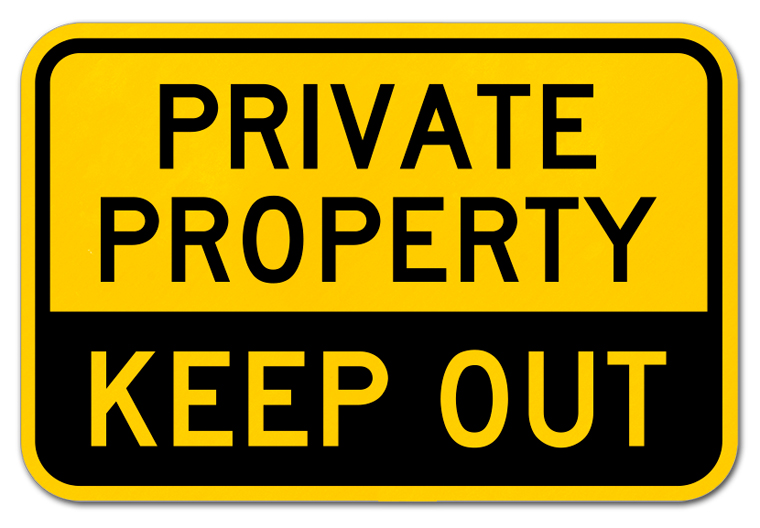
When you think about it, private property, the ownership of the earth itself, is a rather ridiculous idea. An artifact of culture buttressed by social compacts, laws, and precedent, the idea of land ownership is a mere 10,000 years old. Paleolithic hunter-gatherer culture was supplanted by fixed agriculture during the Neolithic period, and this shift was accompanied by the establishment of permanent settlements or cities. With these cities, patriarchal society, the idea of private property, armies and collective self-defense arose; hence the moat, the castle and the ever-widening sphere of physical dominion over land and others.
In North America, the spread of indigenous populations occurred over a 40,000 year period. While Native Americans certainly were territorial, the sanctity of the land was central to their spiritual beliefs, and the concept of land ownership by individuals never was established. Moreover, as enormous animal herds roamed the wilds and prairies, birds migrated and fish traveled upstream to spawn, they were free to move without restriction or constraint. Despite nearly 20,000 years of continuous and wide-spread human habitation, the North American environment remained essentially unspoiled, and the Europeans who later came to this land were stunned by its extraordinary natural abundance, beauty and pristine character.
Of course, the Europeans brought their social and cultural values with them, and among those was the concept of private property. This land was variously claimed for ownership by one European power or another in the name of God and Country. Ultimately, America became a place where a citizen could own land; first white men of power, then later on other races, and finally, women. Land ownership is now so tightly woven into the fabric of our culture that it is all but impossible to imagine an alternative.
The concept of land ownership is quite provocative, however. Since ownership conveys rights, people have been largely free to do as they wished with what they owned. Accordingly, most forests have been cut, innumerable rivers polluted, the air dirtied, and animal populations destroyed. Viewed as natural “resources,” the blessings of this land and the land itself have been thoroughly exploited. We know that our ownership of land is temporary, and we want to make the most of it. That most often has meant and means making lots of money. It is not that people are inherently greedy; it’s just that we can be terribly shortsighted.
Notably, we also tend to view ourselves as the owners of our bodies, ignoring the fact that like the earth itself, we are entirely composed of ancient galactic material that has been recycled continuously since the beginning of the universe. Since we think we own our bodies, we treat them like our other possessions, sometimes well, and sometimes not. In the end, of course, we will give our bodies back, right down to the last atom. In that ultimate sense, we are beggars and borrowers, all.
We humans play but a tiny part in the long history of this planet, a mere blink of an eye in geologic time. It is our outsize egos that make us feel otherwise, and it is our egos that make us think that we own the land. When natural disaster strikes, like Hurricane Katrina, the Tsunami of 2004, or an enormous earthquake, Mother Earth reminds us just exactly who owns what.